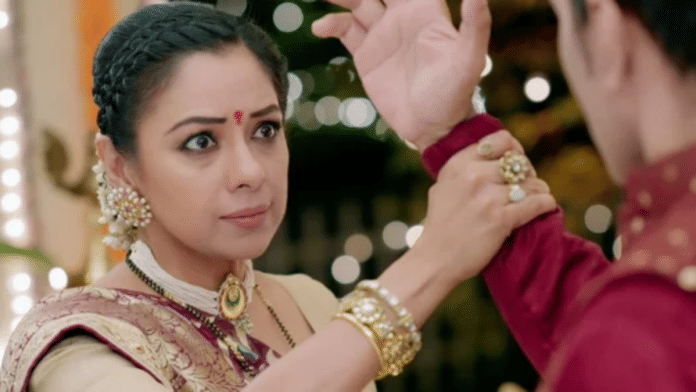Anupama the serial on StarPlus has become a feminist movement in itself. From young women commuting in the Metro to mothers and grandmothers at home, everyone is watching it. Google it and you’ll come across hundreds of news articles on the show – following Anupama’s every move, criticising plot twists and chronicling fan reactions. So, what’s got everyone hooked?
The show has replaced traditional saas-bahu soaps by being more liberal and giving the lead character space to experiment. But how many women do you need to put down to show the possibility of a modern, progressive woman?
Anupama (played by Rupali Ganguly) follows the story of a woman in her 40s who breaks away from a toxic marriage, starts her own enterprise based on her passion for dance, and then goes against society to marry a childhood admirer. Anupama has had 594 episodes so far and managed to garner a TRP as high as 4.5.
Contrary to other serials where the good empowered woman is just another ‘wife’ or ‘mother’ who constantly saves the family from tragedy—whether it be a broken tube light or a serial killer—Anupama shows a woman trying to reclaim her authority and autonomy from a life she had devoted to her husband and children.
It is an unconventional plot, compared to the rest of Hindi TV, which clearly touches a chord with Indian women who watch it. But Anupama is never allowed to be a true rebel. And sadly, that seems to work for the audience.
Also read: ‘Nationalist’ snakes, progressive values: why Naagin 6, Anupamaa are dominating Hindi TV
Can women escape binaries?
The problem with Indian TV series is that it still puts down three women to show one as empowered. Just look at Udaariyan, Kasautii Zindagi Kay 2, or Kumkum Bhagya.
Anupama has aspirations, desires, and knows she deserves respect. And yet, such shows condition women into believing that to be a modern working woman, you need to know household work as well. Anupama is adored more than her counterpart, Kavya who is a working woman and can’t take care of the house. If Kavya is the ‘evil’ character for having a job and being fashionable, the audience applauds Anupama for doing the exact same, but only because she is a home builder, someone who sweeps and cleans her house and packs tiffin for her children before leaving for work.
In these shows, women—no matter how liberal—still exist in binaries. And that seems to work for the target audience of the show – women. A Pew Research Center survey released in March 2022 showed that 9 out of 10 Indian women think wives should obey their husbands.
A particularly striking series was Kuch Rang Pyaar Ke Aise Bhi, which streamed on SonyTV a few years ago. Several Indians found themselves invested in this coming-of-age story of a romance between a modern nutritionist and a successful liberal businessman. While the mother-in-law, Ishwari, tries to create problems between her son Dev and daughter-in-law Sonakshi, she also tries to bring them together after a divorce. Why? Because Sonakshi has now learned how to cook food and has a daughter. The appreciation here is misplaced and follows the same conventional ideal of women being nurturing and providing, rather than ambitious or humanly flawed.
Having an affinity for material pleasures or expressing sexual desires are seen as terrible traits in a woman. Remember Komolika or Maya from Beyhadh?
Also read: Dear Taarak Mehta, you were our peak comfort content for 14 years. Now it’s time to retire
Why the men of Anupama stand out
Most Indian shows give the male lead a visa to act any way they want. Compared to the strict binary women live in, men are allowed to be grey characters with their own set of flaws. They can hit their wives, abuse them, pick on their insecurities, and yet be shown as loving and doting at the end of the day.
Anupama stands out here, each man in the plot has their own personality and cognition. Vanraj (Sudhanshu Pandey) is not your token Indian TV husband with his lovey-dovey charm. He is a narcissist, who thinks he is better than everyone around him, and yet with all his attitude, there is always a contemplation attached to the character that makes him do the right thing in the end. Even Anupama’s sons are poles apart as they can be. Samarth (Paras Kalnawat ) will always side with his mother no matter what, whereas his brother Paritosh (Ashish Mehrotra) is more like his father Vanraj. However even Paritosh actively makes an attempt to do the correct thing.
Even with all its faults, Anupama makes a large chunk of Indian women believe in themselves. It reinforces the idea that if you are genuine, then even after all the hurdles, there will be some sort of victory. There must be a reason women of all ages are watching 600 episodes of it.
Yashika Singla is an intern at ThePrint. Views are personal.






